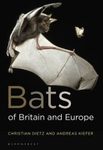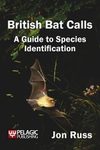By: Christian C Voigt(Editor), Tigga Kingston(Editor)
606 pages, 25 colour photos and colour illustrations; 52 b/w photos and b/w illustrations, tables
![Bats in the Anthropocene Bats in the Anthropocene]()
Click to have a closer look
About this book
Contents
Customer reviews
Biography
Related titles
About this book
Bats in the Anthropocene focuses on central themes related to the conservation of bats. It details their response to land-use change and management practices, intensified urbanization and roost disturbance and loss. Increasing interactions between humans and bats as a result of hunting, disease relationships, occupation of human dwellings, and conflict over fruit crops are explored in depth. Finally, contributors highlight the roles that taxonomy, conservation networks and conservation psychology have to play in conserving this imperilled but vital taxon.
With over 1300 species, bats are the second largest order of mammals, yet as the Anthropocene dawns, bat populations around the world are in decline. Greater understanding of the anthropogenic drivers of this decline and exploration of possible mitigation measures are urgently needed if we are to retain global bat diversity in the coming decades. Bats in the Anthropocene brings together teams of international experts to provide a global review of current understanding and recommend directions for future research and mitigation.
Contents
- Bats in the Anthropocene
- Urbanisation and its effects on bats - a global meta-analysis
- Bats and roads
- Responses of tropical bats to habitat fragmentation, logging, and deforestation
- Insectivorous bats and silviculture: balancing timber production and bat conservation
- Bats in the anthropogenic matrix: Challenges and opportunities for the conservation of Chiroptera and their ecosystem services in agricultural landscapes
- Dark matters: the effects of artificial lighting on bats
- Bats and water: anthropogenic alterations threaten global bat populations
- White-nose syndrome in bats
- Zoonotic viruses and conservation of bats
- Impacts of Wind Energy Development on Bats: a Global Perspective
- Exploitation of Bats for Bushmeat and Medicine
- The conflict between pteropodid bats and fruit growers: species, legislation and mitigation
- Bats and buildings: The conservation of synanthropic bats
- Conservation ecology of cave bats
- The roles of taxonomy and systematics in bat conservation
- Networking networks for global bat conservation
- Cute, Creepy, or Crispy - how values, attitudes and norms shape human behavior toward bats
Customer Reviews
Biography
PD Dr. Christian C. Voigt is a senior research scientist at the Leibniz Institute for Zoo and Wildlife Research in Berlin, Germany and founder and organizer of the International Berlin Bat Meetings. The meeting ('Bats in the Anthropocene', 1.-3. March 2013) served as focal point for this book project. Dr. Voigt received his doctoral degree from the University of Erlangen, Germany, where he studied nectar-feeding bats. He is broadly interested in the eco-physiology, sociobiology and conservation of bats and has published more than 100 papers in peer-reviewed journals. Currently, he is serving as an associate editor for Behavioral Ecology and Sociobiology and for Oecologia (between 2006 and 2011 also for Journal of Mammalogy).
Dr. Tigga Kingston is an Associate Professor in the Department of Biological Sciences Texas Tech University and a central figure for the conservation of bats in Southeast Asia, she is the founder and director of the Southeast Asian Bat Conservation Research Unit established with support from the National Science Foundation, USA, and has been the co-organizer of the 1st and 2nd Southeast Asian Bat Conferences held in Thailand and Indonesia. She has earned a PhD degree at Boston University where she studied bat assemblages in Peninsular Malaysia, and has published more than 40 papers in peer-reviewed journals and book. She serves on the advisory boards of Bat Conservation International and Lubee Bat Conservancy, and served for three years on the board of the North American Society for Bat Research. She is a member of the IUCN Chiroptera Specialist Group and is an author of 87 SE Asian Bat Red-list Accounts.
By: Christian C Voigt(Editor), Tigga Kingston(Editor)
606 pages, 25 colour photos and colour illustrations; 52 b/w photos and b/w illustrations, tables







































